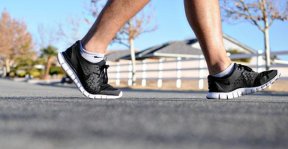
A moderate-intensity walking regimen may reduce symptoms of mild cognitive impairment that are linked to poor blood vessel health in the brain, a small study suggests. Participants with vascular cognitive impairment, sometimes called vascular dementia, who walked three hours per week for six months had improved reaction times and other signs of improved brain function, the Canadian team reports in British Journal of Sports Medicine. Vascular cognitive impairment, or VCI, refers to mildly impaired thinking or more advanced dementia that’s due to the same kinds of blood vessel damage seen with heart disease elsewhere in the body. It is the second most common cause of dementia after Alzheimer’s disease. “It is well established that regular aerobic exercise improves cardiovascular health and cerebrovascular health,” the study’s senior author Teresa Liu-Ambrose told Reuters Health in an email.

“More specifically, it reduces one’s risk of developing chronic conditions such as high blood pressure, diabetes (type II), and high cholesterol. These chronic conditions have a negative impact on the brain – likely through compromised blood flow to the brain,” said Liu-Ambrose, a researcher with the Aging, Mobility, and Cognitive Neuroscience Lab at the University of British Columbia in Vancouver. The brain is a highly metabolic organ and to keep it healthy, it requires good blood flow to deliver the necessary nutrients and oxygen to its tissues, she added. “It is worth noting that in our study, reduced blood pressure (secondary to exercise) was associated with improved cognitive function,” Liu-Ambrose said. Aerobic exercise may also benefit the brain by increasing growth factors, which substances are made by the body that promote cell growth, differentiation and survival, she said. The study was small, and because participants had to be able to walk for up to an hour, it’s possible they were physically healthier than average, the authors note. The socializing involved in the walking classes might have also had some effect, they add.











